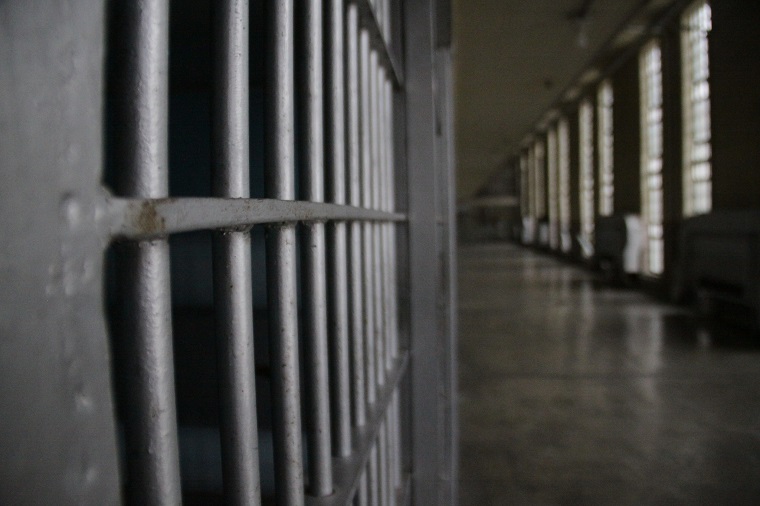
This bipartisan criminal justice reform bill will exacerbate racial disparities, fuel mass incarceration, and encourage prison privatization.
A bipartisan criminal justice reform bill known as the “First Step Act” (S.756) is advancing through Congress, with broad support from across the political spectrum. It’s tremendous to see the conversation on criminal justice reform take center stage, and the bill contains several provisions to reduce America’s prison population and improve conditions for those incarcerated.
But the measure falls far short of forging a true “first step” toward fundamental change and addressing racial disparities in our criminal justice system.
What’s more, several provisions are deeply problematic and would exacerbate racial disparities in the sentencing of individuals and encourage the expansion of the prison industrial complex. And as the bill passes through Congress, terrible amendments that stand in stark contrast to the supposed goal of the bill are being proposed to placate members who seek to be “tough on crime.”
That’s why AFSC – and several other groups who work with people directly affected by the criminal legal system – are urging Congress not to pass the bill in its current form.
Here’s what you need to know about the steps backward in the First Step Act:
Reinforcing structural racism. For decades, the criminal legal system has disproportionately and by design brought harm to Black and brown communities. The bill further entrenches structural racism by implementing so-called “risk assessment tools” that rely on racially biased factors to determine who is eligible for rehabilitative programs in prison or release. AFSC opposes any form of algorithm-based risk assessment provisions in any legislation on criminal justice reform. The First Step Act should use a human-centered and individualized needs assessment for people who are incarcerated. And in-prison programs should be available to all incarcerated people, regardless of the nature of their conviction.
Excluding immigrants from reforms. The First Step Act would penalize immigrant communities, further widening disparities for non-U.S. citizen residents in the justice system. The range of non-citizen exclusions in the bill sets a problematic precedent that immigrants do not deserve more humane treatment within the criminal legal system. Any attempt at comprehensive federal level criminal justice reform must include immigrants because migration-related cases make up over 50 percent of all federal criminal prosecutions. The legislation excludes non-citizens from benefiting from a range of provisions, including ones that would help people in prison earn early release.
Protecting private prisons. The First Step Act creates more opportunities for prisons to contract with private corporations that profit from human suffering. The bill makes way for privatized in-prison programming and electronic monitoring, which would feed the bottom line of companies that have a track record of human rights violations and cannot be held accountable by incarcerated individuals, their families, advocates, lawmakers, or taxpayers. Instead of relying on privatized for-profit prisons, Alternative to Incarceration programs (ATIs), and community corrections programs, we need to work to reduce overall incarceration rates and reliance on the criminal justice system.
Widening the doors to “e-carceration.” This legislation could introduce dangerous precedents with ramifications that incarcerated individuals, their loved ones, and their communities will have to endure for years – even after they leave prison. The bill calls for increased electrical monitoring and home detention, which expands the carceral state into the homes and communities of impacted individuals – primarily communities of color. People should be allowed to return home to their loved ones and communities without the stigma of an electronic shackle. Moreover, ‘e-carceration’ will only further benefit private prison companies like the GEO Group.
Privileging religious participation. Provisions in the measure violate the Constitution’s guarantee of religious freedom. Language in the legislation includes “faith-based classes or services” in the definition of “evidence-based recidivism reduction program.” These provisions will put the religious freedom of people who are incarcerated at risk as it might pressure them to participate in programs based on a faith that they do not believe in.
Now is the time to push for a real overhaul of the criminal justice system.
True criminal justice reform is long overdue. But the First Step Act may offer a relief valve for mounting pressure to address mass incarceration without offering an actual avenue toward real change in the criminal justice system. That’s why AFSC and other groups oppose the bill in its current form.
There are several good things in this bill, including limiting the use of mandatory minimum sentences in some cases, addressing the racial disparities in crack and cocaine sentencing patterns, and improving health care for women in prison. But many of the improvements offered in this bill could be made through administrative changes by the Justice Department.
And none of the proposed activities in this federal legislation compare to the substantive reforms undertaken at many state and local levels. It’s important to remember that the scope of this bill is limited to the federal system – which will not provide any relief for the 87 percent of incarcerated people in state facilities.
Ultimately the First Step Act – as it is written – would reinforce discriminatory and highly punitive components of our current criminal legal system, while missing an important opportunity to make real change and move us closer to healing – instead of punishment – in our criminal justice system.